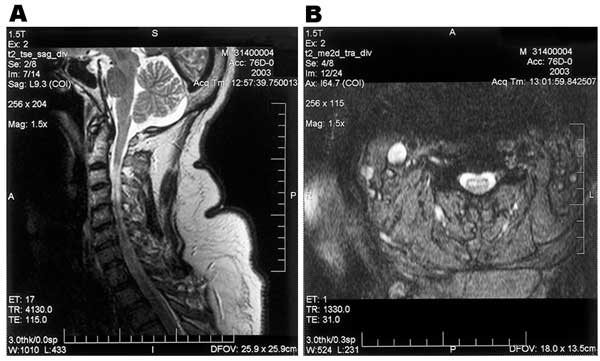Volume 11, Number 7—July 2005
Research
West Nile Virus–associated Flaccid Paralysis
Figure 2

Figure 2. . Saggital (A) and axial (B) T2-weighted magnetic resonance images of the cervical spinal cord in a patient with acute asymmetric upper extremity weakness and subjective dyspnea. A shows a diffuse cervical cord signal abnormality, and B shows an abnormal signal in the anterior horn region.
Page created: April 23, 2012
Page updated: April 23, 2012
Page reviewed: April 23, 2012
The conclusions, findings, and opinions expressed by authors contributing to this journal do not necessarily reflect the official position of the U.S. Department of Health and Human Services, the Public Health Service, the Centers for Disease Control and Prevention, or the authors' affiliated institutions. Use of trade names is for identification only and does not imply endorsement by any of the groups named above.